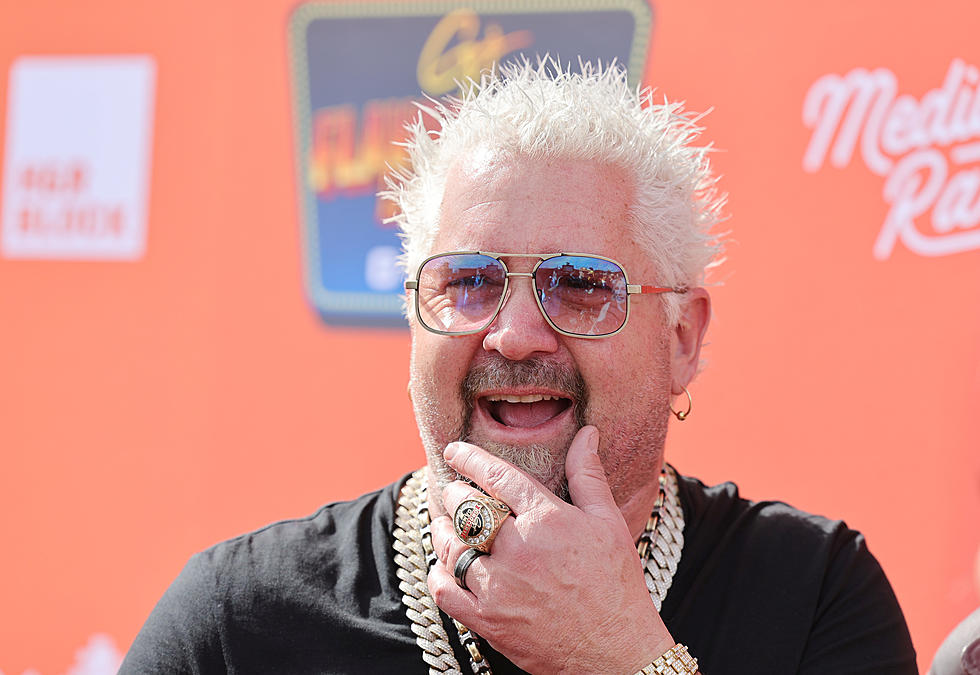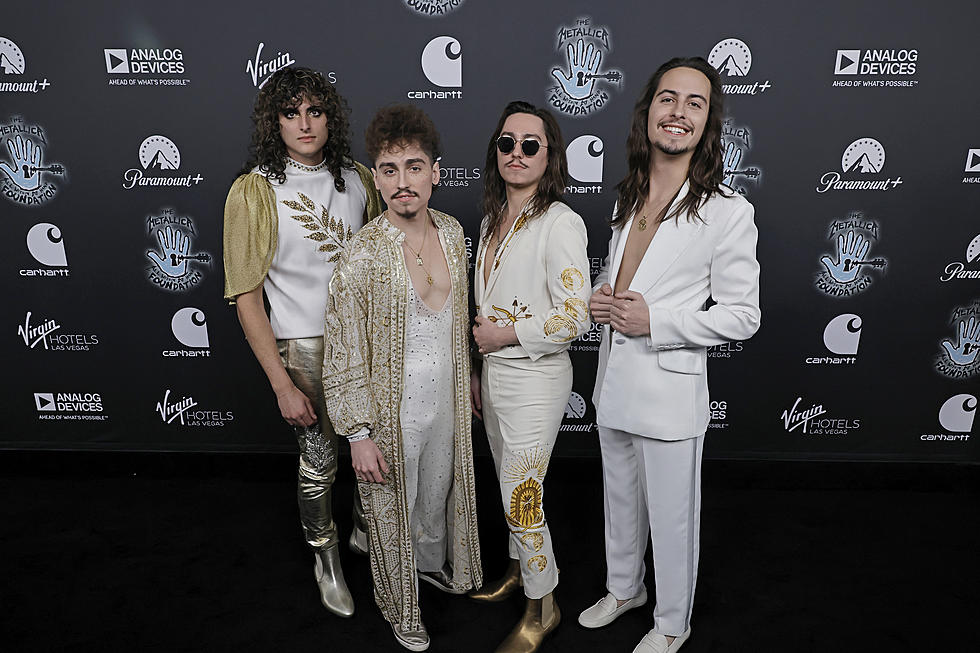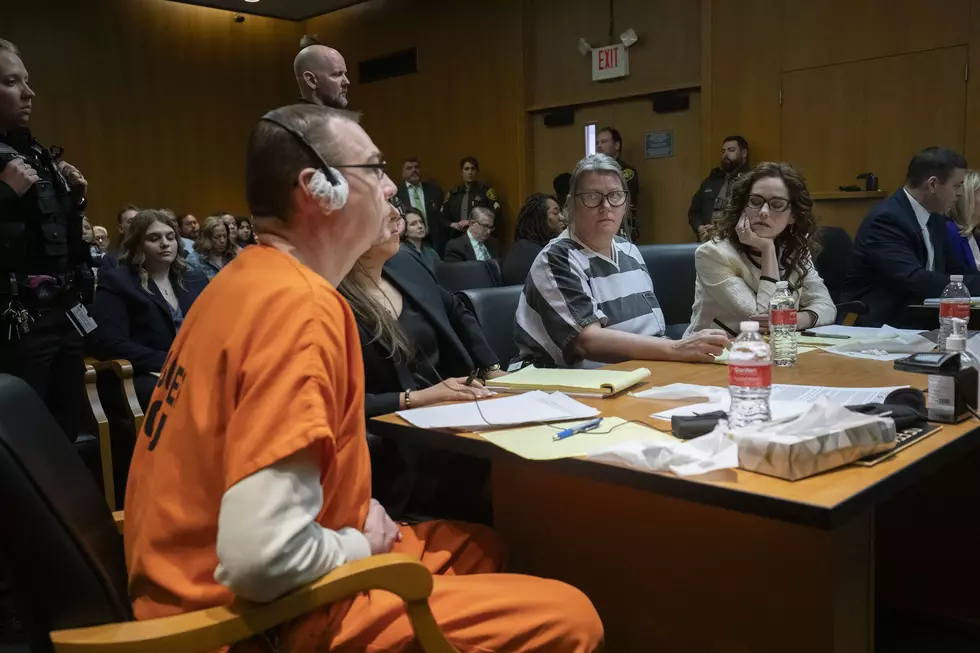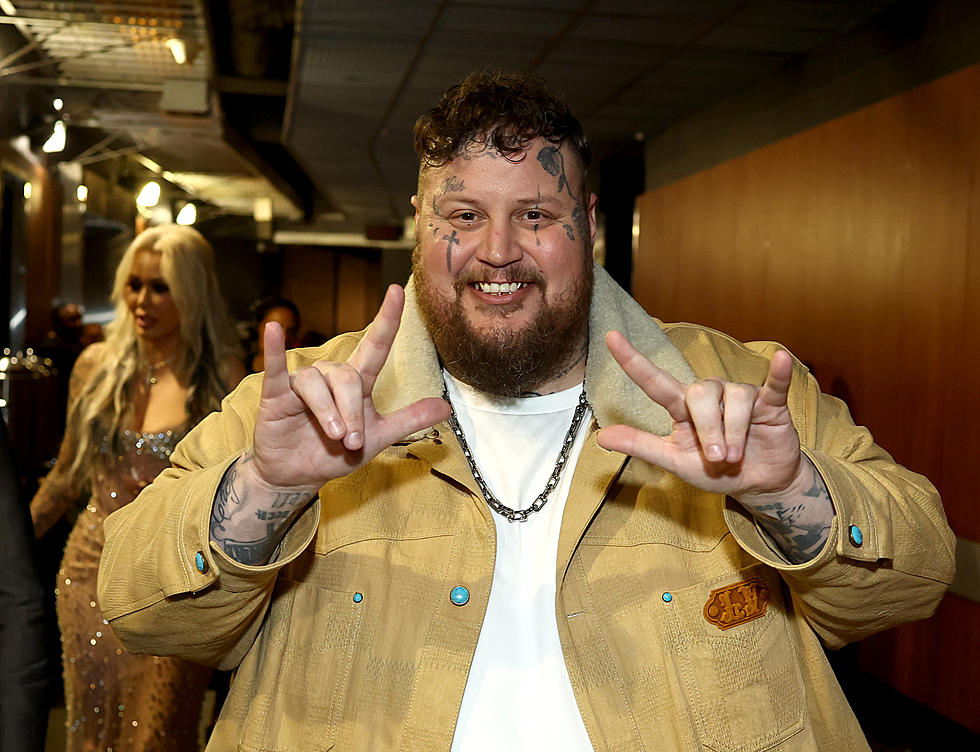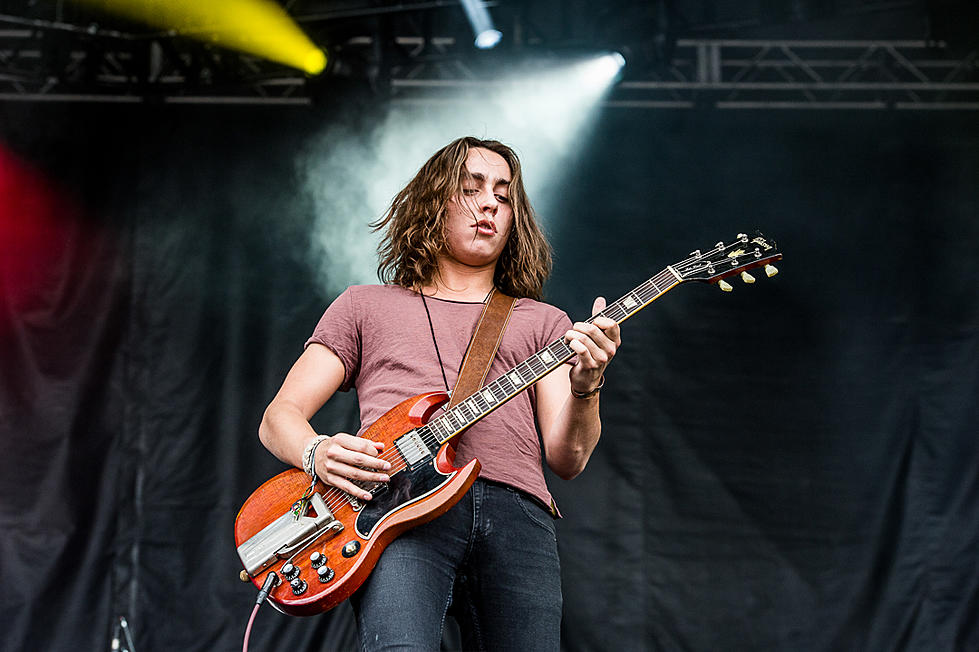
Going Behind Greta Van Fleet’s Rock Renaissance With Guitarist Jake Kiszka
Michigan is one of the most historic rock states in America and home to legends like Ted Nugent, Bob Seger, the MC5, Grand Funk Railroad, The Stooges, Alice Cooper as well as Motown artists such as The Temptations, The Supremes and Stevie Wonder. It's also home to rising rock sensation Greta Van Fleet, who have experienced breakout success on the back of a pair of 2017 EPs.
The group was formed in 2012 by the three Kiszka brothers — Josh (vocals), Jake (guitar) and Sam (bass) — alongside drummer Danny Wagner, who joined one year later. In the short time that they've been together, they've brought rock to the mainstream, landing spots at major festivals that have almost abandoned rock and roll entirely. Their sound is heavily influenced by the greats of the '60s and '70s, reintroducing those sounds to generations young and old who are thirsty for a rebirth of straight-ahead rock music.
Anthem of the Peaceful Army, their forthcoming full-length debut album, is possibly 2018's most anticipated rock record and we caught up with guitarist Jake Kiszka to discuss the new music, Greta Van Fleet's place in the current rock landscape and the rumblings of what could be rock's renaissance.
You've said before that a lot of the material on Anthem of the Peaceful Army was written years ago. What's the oldest song on here and which one was written most recently?
The oldest song on the album is "You're the One," which was probably written around when Josh and I were 17. The newest, or newer songs on the album are "Brave New World" and "Age of Man." There was so much [material]... a handful of songs on the album were written during the recording process, but certainly, those are newer ones on the album.
"You're the One" reminds me a little bit of The Band and I want to know about some of your influences there. Obviously, a little bit more '60s it seems.
Yeah, I think certainly around the period of time this song was written there was quite a bit of folk that we were listening to. It was [Bob] Dylan and The Band, Joni Mitchell and Joan Baez and things like that. So, it was certainly folk elements surrounding "You're the One."
I suppose, all the songs, in essence, on the album are very "songy" songs. So, if you strip them down you could play them acoustically and you can still hear the soul of the song and at a pure level. That's another objective that we tried to achieve when we were recording the album.
Does this give you some freedom to kind of tinker with these songs live? Maybe adapt it a little bit more for the stage instead of the studio?
Yeah, absolutely. There's two different worlds: recording and being a studio musician and live performance. The songs are very simply recorded, especially on this album, so that's going to be easier translated live certainly as well.
During soundchecks and as we've been traveling [we've been] applying them in different arrangements and stretching them out and basically jamming around on them live and coming up with how we want to adapt them live.
That's great because that's another thing that's missing a today. You listen to something like Made in Japan from Deep Purple and they really stretch out those arrangements and it gives this kind of dangerous edge to the songs because you know them, but you don't know where they're going live.
Exactly — you don't know what to expect. Especially if you know there are so many people who come to the shows night after night and there's still variation and there's still something going on that's changing. If we can entertain ourselves that way, it certainly entertains the audience as well. Stagnation is sort of dangerous.
Did seeing the reaction to particular songs live influence your writing approach at all for this album?
Certainly. There's been a lot of artistic internal and external growth in what we're doing. You can see how people are perceiving it and you definitely gain more of an opinion. It's interesting because it seems to be not so much structurally paying attention really intently to how the audience reacts to one part or another, but certain elemental things like pushing it and jamming and seeing how people respond to different parts.
"Lover, Leaver (Taker, Believer)" took a journey in that sense, because that song was a lot more structured once. It's like many of the songs or all of the songs that we had previously written that were on the album, we entirely rerecorded because a lot of that stuff was in the set that we were using at the time. That song kind of moved and evolved and all it does now is kind of journey and travel but there's no strict arrangement and a short chorus that happens twice.
Let's talk about your fanbase a little bit because you've completely won the hearts of the older generation. What is the makeup of the audience as far as age goes?
It's fascinating because within that eclectic group there is a large amount of variation between age groups. We got lucky in the sense that it's very multi-generational and the fact that we're serving our own generation as well, because we're very much a product of it and products of our environment. I suppose that's all reflective to the music as well, as far as socially and politically what's going on.
It's 8 to 80, really. It seems to be younger girls up front and then the younger guys standing behind them and then it tapers off and you see the parents and you see the parents' parents. That's the most inspiring thing to see every night — there's a sense of unity and that sustains us.
Greta Van Fleet were featured in a Bose NFL commericial. I was watching Monday Night Football the other week and I saw that commercial and I was like, "No way!" Right now there's a lot of commercials on TV using rock songs. You've got The Rolling Stones' "She's a Rainbow" used in a car commercial.
Yeah, I saw that. That was brilliant!
You've got Motorhead covering "Sympathy for the Devil" on another car commercial. I've heard Slash Featuring Myles Kennedy and the Conspirators during NFL games... I've heard Mastodon. The mainstream is perpetuating this narrative that rock is dead but it seems like a lot of people are still looking to rock. Do you think that rock needed to take a hit and go away from the public eye for a little bit in order for people to rediscover it and appreciate it again?
I think that's part of the evolution that you're talking about. As something fades in prevalence something else becomes more predominant and I think that people say "rock and roll is dead." Just because something is [in the] minority doesn't mean that it's dead. I think that Ayn Rand said something like that. The minority is the most powerful of all things. Once something becomes suppressed there's a multitude of emotions that could be shared, like anger and there's a bit of rebellion but it's also the lack of that certain thing and, in this particular question, focusing on the lost genre of rock 'n' roll.
I've thought about it more and more but there's thousands and thousands of kids in their garages and their basements or wherever right now who choose to pick up instruments and are inspired by whatever, whomever and it seems that they're going to be coming out of the woodwork at some point. I think that it could be very interesting to see a [rock] renaissance of sorts.
Greta Van Fleet's debut album, 'Anthem of the Peaceful Army' comes out on Oct. 19, and can be pre-ordered here. Follow the band on Facebook to stay up to date with everything they're doing.
Greta Van Fleet Talk New Album, Robert Plant + More
The Best Hard Rock Album of Each Year Since 1970
More From Banana 101.5
